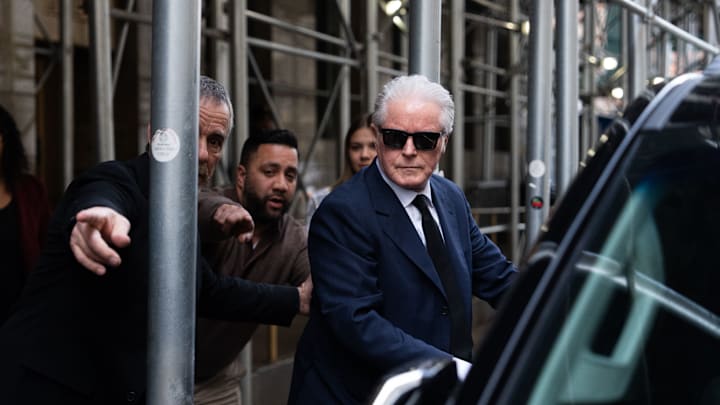In a surprising turn of events, New York prosecutors abruptly terminated their ongoing criminal trial against three individuals accused of conspiring to possess a collection of hand-written lyrics, including those of the iconic Eagles hit "Hotel California." The defendants, prominent figures in the world of collectibles, included rare-book dealer Glenn Horowitz, former Rock & Roll Hall of Fame curator Craig Inciardi, and memorabilia seller Edward Kosinski.
The trial, initiated in 2022, revolved around approximately 100 pages of legal-pad drafts from the creation of the renowned 1976 album Hotel California, one of the top-selling albums in U.S. history. The controversy began when these lyric sheets began appearing in auctions in 2012, eliciting the disapproval of Eagles co-founder Don Henley. The pages had initially been shared with writer Ed Sanders for an Eagles band biography project that never came to fruition. Sanders subsequently sold them to Horowitz, who then transferred them to Kosinski and Inciardi, ultimately leading to their auctioning (presumably on "a dark desert highway").
How the so-called "Hotel California" lyrics case fell apart
Henley both repurchased some of the material for $8,500 and reported some documents stolen, according to court records. Facing charges of conspiracy to criminally possess stolen property and other offenses, the defendants had pleaded not guilty. However, the trial took an unexpected turn when Assistant Manhattan District Attorney Aaron Ginandes announced the prosecution's decision to drop the case, citing newly uncovered emails that defense attorneys argued raised doubts about the trial's integrity.
The emergence of these communications, occurring after Henley waived attorney-client privilege, shed light on approximately 6,000 pages of material that had not been previously disclosed. This belated revelation prompted questions regarding the fairness of the trial, leading Judge Curtis Farber to dismiss the case, noting that the privileged information had been used to obscure and withhold potentially damaging evidence. Prosecutors had contended that the defendants knowingly dealt with pages of dubious ownership but proceeded with their sale, allegedly concocting a false provenance to satisfy auction houses and thwart demands for the documents' return to Henley.
In response, the defendants asserted their rightful ownership of the pages, claiming they were not stolen property. Henley, testifying during the trial, maintained that he had allowed Sanders access to the documents for research purposes but had not gifted or authorized their sale. While expressing relief at the case's dismissal, Jonathan Bach, an attorney for Horowitz, emphasized outside the courtroom that the trial should never have been initiated. Notably, Henley's current attorney, Dan Petrocelli, criticized the decision to waive attorney-client privilege, stating that it is a fundamental aspect of the justice system and lamenting the outcome as unjust for his client.
Petrocelli affirmed that Henley would pursue all available legal options in civil court. The Manhattan district attorney's office did not immediately respond to requests for comment on the case's dismissal. The trial also partly received attention for some sordid details revealed in Henley's trial testimony. With the Beach Boys also receiving occasional headlines, and now this unrelated trial falling apart, this seems like an unexpectedly significant year for classic rock-related news stories. Well, that is largely what we are here for!
